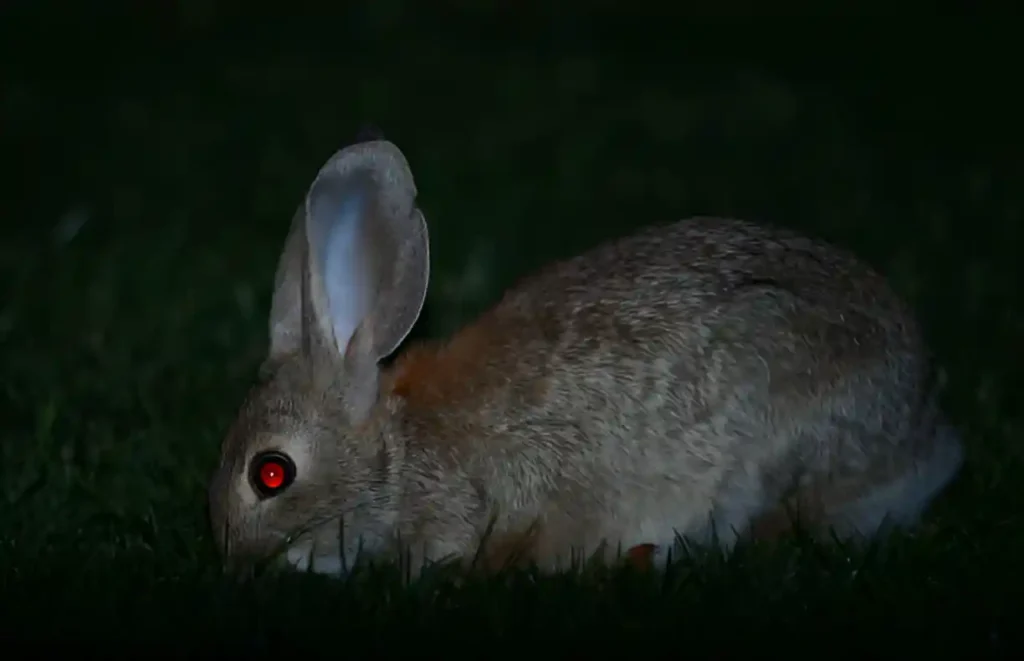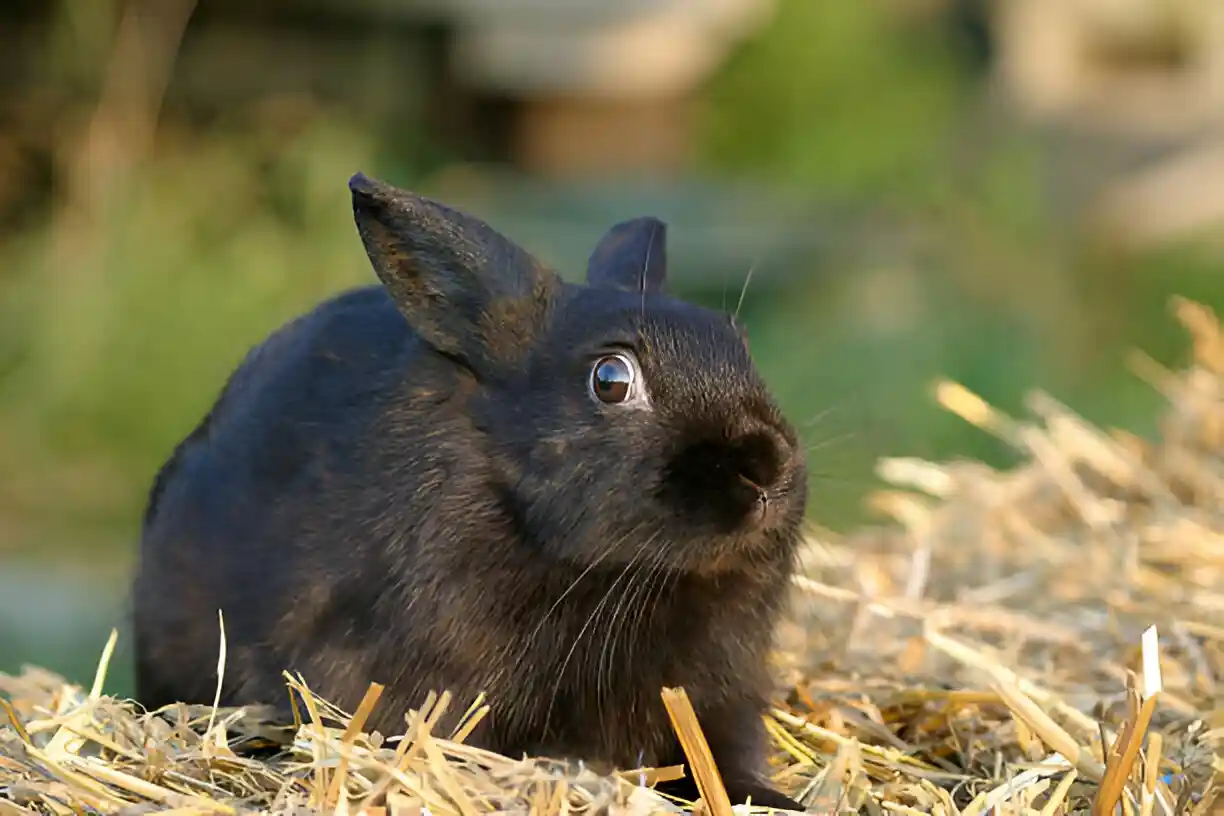What kills rabbits at night is a concern many pet owners and wildlife enthusiasts share. Rabbits, known for their quiet nature and timid demeanor, are unfortunately vulnerable to various nocturnal threats. From predatory animals to unforeseen health issues, the reasons behind these nocturnal deaths vary. As rabbit caretakers or observers, knowing these threats is key to prevention and peace of mind. Let’s unravel what puts our furry friends at risk when the sun goes down.
What Kills Rabbits at Night
Predators on the Prowl
The stillness of night offers a cloak for predators seeking out rabbits. Common culprits include foxes, owls, and raccoons, all equipped with keen senses to detect and hunt rabbits. Their stealth and speed allow them to ambush unsuspecting victims, often without warning.
Feline Nightstalkers
Domestic and feral cats, though often overlooked, pose a significant threat to rabbits. Their nocturnal instincts kick in as darkness falls, making any unsecured rabbit a potential target for a deadly game of cat and mouse.
Canine Threats
While less common, dogs can also endanger rabbits at night. Those left unprotected outdoors might catch the unwanted attention of neighborhood dogs on the loose, turning the rabbit’s habitat into a danger zone.
Illness and Stress
Unexpected Sickness
It’s not just predators that lead to a rabbit’s demise at night; abrupt health issues also play a role. Since our little friends can’t tell us when they’re not feeling well, an underlying condition can quickly worsen without daylight observation.
The Toll of Stress
Rabbits are sensitive creatures, easily stressed by nighttime noises or disruptions. This stress can be fatal, causing heart attacks or seizures that claim lives during the darkness hours.
Environmental Dangers
Mysterious Poisons
As they explore or nibble at night, rabbits may encounter toxic plants or pesticides mistakenly. Ingesting these harmful substances often leads to dire outcomes, more so under the cloak of night.
Harsh Elements
Sudden temperature drops or inclement weather can be just as deadly. An unprotected rabbit may succumb to hypothermia or other weather-induced conditions during the nocturnal period.
Protect Your Rabbit From Nighttime Threats
Ensuring your rabbit’s safety at night is critical. Here are key tips to fortify their protection:
Secure Housing
Secure Housing is essential in safeguarding your pet rabbit from nocturnal predators. An enclosure with solid walls, a secure door, and a wired roof will thwart most animals’ attempts to breach. It’s imperative to check the habitat regularly for any weak spots or damages that predators could exploit.
Minimize Exposure
If you let your rabbit roam outside, always supervise their playtime. Limit their outdoor activity to daylight hours when you can keep an active watch over them. Bring them in as evening approaches to ward off any nighttime predation threats.
Regular Health Checks
Proactive measures can spot and avert health problems early. These include regular vet visits and watching their behavior closely. Recognizing signs of distress or illness in rabbits can prevent overnight emergencies.
Stress Reduction Strategies
Create a calm environment for your rabbit to help minimize stress. This can involve providing hiding spaces within their cage, minimizing loud sounds, and practicing gentle, predictable handling. By reducing anxiety levels, you strengthen their resilience to stress-related incidents at night.
Detecting Danger by Educating Your Rabbit
Educating your rabbit to respond to danger can make a huge difference. Training them to retreat to safety at the sound of a particular signal or when sensing a predator can reduce risks significantly. Though it may take patience and repetition, it will offer an additional layer of protection for your beloved pet.
Safe Plants and Foods
Understanding the local flora and its impact on your rabbit’s health is crucial. Only providing safe, rabbit-friendly vegetation within its reach can prevent accidental poisonings. Keep a list of toxic plants and make sure these never come into contact with your rabbit’s living space, particularly if they spend time outdoors at twilight.
Weather Proofing Their Space
Creating a space that can weather the elements will protect your rabbit from sudden temperature changes or harsh climate conditions during the night. Insulate their habitat, provide warming pads during winter, and ensure there’s enough ventilation during hotter seasons to fend off temperature-related health issues.
Disaster Preparedness
Include your rabbit in your emergency plans in case of an unexpected event, such as natural disasters. Having a portable shelter and an emergency kit with necessary supplies (food, water, medication) is imperative should you need to move them quickly to a safer place.
Monitoring Potential Hazards
Regularly evaluate your rabbit’s environment for potential threats. This includes inspecting the integrity of their enclosure, ensuring the area is clear of dangerous objects or substances, and even checking for natural hazards such as branches that predators could use to climb into the enclosure.
Advanced Health Care
Invest in precise measures to further safeguard your rabbit’s health. This range includes vaccinations, parasite control, and getting expert advice on any genetic predispositions your rabbit might have towards certain illnesses. By addressing health care proactively, you increase their defenses against nocturnal dangers.
Foster a Relationship With Local Wildlife Experts
Engaging with wildlife experts can provide valuable insights into what kills rabbits at night in your specific area. They can offer advice on how to coexist with local predators safely and can educate on custom preventive measures tailored to your environment.
Stay Vigilant and Informed
Constant vigilance is necessary when it comes to keeping nocturnal threats at bay. Staying informed about the latest veterinarian recommendations and predator behaviors can empower you with the knowledge needed to
Conclusion
When considering what kills rabbits at night, you must examine a wide array of factors including predators, health, and even the weather. By being vigilant in their care and creating a secure environment, you can greatly lower the risks that rabbits face in nocturnal hours. Educate yourself, prepare accordingly, and rest easier knowing you’ve done your utmost to protect these delightful nocturnal prey animals from harm.
Frequently Asked Questions on What Kills Rabbits at Night
What are the most common predators of rabbits at night?
Foxes, owls, and domestic animals like cats and dogs are the most common predators that threaten rabbits at night. Ensuring secure enclosures and using predator-proof materials can help protect rabbits from these threats.
How can I tell if my rabbit is stressed?
Signs of stress in rabbits include changes in behavior such as aggression, excessive hiding, and loss of appetite. Physical symptoms like lethargy, labored breathing, and diarrhea can also indicate stress or health issues.
What should I do if I suspect my rabbit has eaten something toxic?
If you suspect your rabbit has ingested a toxic substance, contact your veterinarian immediately. Identifying the substance and providing prompt medical care is crucial for the rabbit’s survival.
How can I make my rabbit’s enclosure safe from predators?
Use sturdy materials, secure locks, and elevated hutches to protect your rabbit’s enclosure from predators. Regularly inspect the enclosure for any weak points or potential entryways for predators.
What environmental factors should I consider for my rabbit’s nighttime safety?
Ensure the enclosure is weatherproof, well-ventilated, and insulated against extreme temperatures. Remove any toxic plants from the area and ensure the enclosure is secure against potential threats like storms or heavy rain.
How often should I check on my rabbits at night?
Regular nightly checks are recommended to ensure your rabbits are safe and secure. Using security cameras can also provide continuous monitoring and peace of mind.
Useful Equipment
- Fresh Breathies to finally kiss bad doggie breath goodbye.
- Brush for dog hair.
- Dog Grooming Kit
- Pet Hair Lifter
- The Best High Quality Dog Food
- Pet Merchandise.
Useful Courses
Brain Training for Dogs – the best & most effective dog training course in the market right now.
So, let us know did you find this article helpful? Are there any other questions you would like us to answer? Let us know in the comment section down below!
If you are a dog or pet lover in general here are a few more articles you may find interesting:
- DOG TRAINING SPRAYS: A COMPLETE GUIDE FOR DOG OWNERS
- DOG TRAINING POUCH: THE ULTIMATE COMPANION FOR EFFECTIVE TRAINING 2024
- HOMEMADE DOG RECIPED FOR EVERY OCCASION 2024
- THE BEST AND MOST DURABLE DOG TOYS 2024
- DISCOVER THE HEALTHIEST DOG FOOD TODAY! A REVIEW GUIDE 2024



